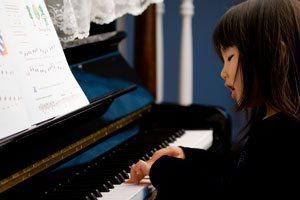Pages
- A KUNG
- Anthony
- Blog
- Cart
- Charlotte
- Checkout
- Chloé
- Chris
- Contact
- Danny
- David
- Guitar Instructors
- Home
- Home
- Hovig
- Instructors
- Isaac
- Jennifer
- Jon
- Mira
- Music Lessons
- My Account
- Paul
- Percussion Instructors
- Photo Gallery
- Piano Instructors
- Pricing
- Pricing New
- Samantha
- Sample Page
- Sarah
- Shop
- Sitemap
- test
- Testimonials
- Tsuzumi
- Violin Instructors
- Voice Instructors
- Who We Are
Categories
Archives
Meta
Samantha – Instructor of the Month
13/05/15

We had such a blast interviewing this month’s “Instructor of the Month”, Samantha Aurelio. Specializing in singing and songwriting, Samantha is an outstanding instructor and performer. While seeing multiple students each week, she has managed to make time to work on Stepping Stones, her second EP album that was released April 4.
Samantha has loved music her whole life, but she first noticed her knack for singing when she signed up for her middle school talent show. She auditioned for a singing performance and brought her teacher to tears. Why voice of all instruments? She simply enjoyed singing to tracks in the car. She would harmonize with her sister on road trips and just sang along with the music that played around the house.
In high school, she participated in musicals usually with a role in the ensemble, which was the harmony and backbone of each song. She actually landed a lead role as Snoopy right before going off to college! She would absolutely love to participate in more musicals if she “wasn’t terrified of acting.”
Growing up, Samantha loved watching her favorite artists perform. It always fascinated her because she admired that they did what they loved for a living. She was inspired at a young age and decided to pursue singing as a career. For Samantha, singing has always been an outlet, and she never had a ‘plan B’. She loved the idea of performing, but really got to consider teaching after taking a vocal pedagogy course in her junior year of college. “I feel like I have enough knowledge in theory that I could be a tool to students who don’t know how to break through the walls that have been holding them back.”
Samantha is a passionate songwriter. She composes her own music and writes her own lyrics and melody. She grew up listening to classic rock and country music, and later studied jazz. Her style is “indie-pop blues with a little bit of rock and roll”. One of her favorite bands she grew up listening to is Queen. Her biggest influences are Sara Bareilles and the Wilson Sisters.
“A musician should listen to all types of music and should be well-versed in music itself. You can’t lock yourself in one genre,” according to Samantha, “I believe that understanding theory…reading music…improving your ear…is very important.” Like most other musicians, Samantha makes mistakes during performances. Her advice for students who also perform is to, “Just go with the flow and don’t get caught up with the audience.” She added, ”I get very anxious before shows and it’s something I work on daily, but making mistakes is the beauty of live performances. It makes every show special.“
To end our interview, we decided to have a little fun with flash questions! The following are Samantha’s favorites:
1. RMA: What are you favorite hobbies? Hobby (un-related to music):
Samantha: “Cooking, fitness and watching Friends on Netflix.”
2. RMA: What is your favorite food?
Samantha: “Oooh…sushi!”
3. RMA: Where would you like to getaway to?
Samantha: “My favorite place to travel to…a getaway for me…northern California. My best friend lives up there. New Jersey is also a great getaway because I love going home.”
4. RMA: What is your favorite song?
Samantha: “That’s hard…Mountain Time by Joe Bonamassa!”
5. RMA: What is your favorite type of performance to watch?
Samantha: “A live show with an intimate venue or setting…like small theater or Hotel Cafe where you’re almost one-on-one with the artist.”
6. RMA: What is your favorite genre of music?
Samantha: “If i could outlaw the word genre! It just seems so barebone.”
5 Valuable Life Skills from Music
13/04/15

Studies have shown that music education can be very beneficial for child development, especially because music is universal and very fun to learn! So why not take advantage of this amazing tool? Children who pick up an instrument develop skills that will help them far beyond reading sheet music.
Here are five valuable life-skills that your child can develop from music education.
- Confidence. Children learn to take on challenges with courage. When learning piano, accepting the challenge of learning a new, difficult piece is commendable. One knows that they will have to put in a lot of effort and time to master a song. Performing in front of a teacher, family, friends or even strangers can be nerve-racking. It takes a lot of self confidence for a child to overcome the stress or anxiety that may surface with an upcoming recital.
- Patience. Children learn to adapt their expectations when having to learn a challenging piece. When having difficulty, instead of giving up right away, they realize they need to take small steps that may take them longer to accomplish their big goal of mastering the song. They learn that practice makes perfect.
- Ingenuity. Children develop creativity skills that can help them in all aspects of life. Being creative will help them to be more resourceful when facing a problem. Their overall dexterity will also improve. They won’t complain about being bored because they can always think of new ideas to have fun, like composing a new song!
- Determination. Children learn to stay focused to achieve the goals they set. Learning music takes a lot of good habits and self-discipline. It takes a lot of hard work to attain set goals. Setting big goals, like learning a new Mozart piece, motivates people to accomplish them.
- Critical Thinking. Children learn to follow notes, count beats, and play their instrument all at once. Looking at each note, measure, and phrase alone takes a lot of critical thinking to then have to play in such a way that will give life and soul to a song. Learning how to read music helps children excel in subjects like English because of the reading comprehension skills needed.
Four Powerful Tools of Music
05/04/15

We hope you’ve had a great start to the new year! Have you been keeping up with your new year’s resolutions? One of our resolutions is to strive even further to provide you with the best music education out there. Not only can you learn through our talented instructors, but also through our blog!
As we’ve mentioned before, music is a powerful tool that can be utilized for people of all ages, whether it’s used for child development or even music therapy for adults. Because it is a new year, we would like to reflect on a few amazing scientific discoveries made in 2014 about people who listen to music.
- Music Improves Running Performance.
“I’m going to exercise more this year.” Are you one of those people whose list of resolutions include going to the gym more often?? Guilty! *blushes* We hope you’ve been keeping up with your cardio because according to the Journal of Strength & Conditioning Research, listening to fast or slow motivational music while running stimulates the prefrontal cortex, which gives runners more positive emotions that contribute to an improved performance and faster recovery time post-run.
- Correlation Between Rhythmic Ability and Language Learning.
According to developmental psychologists from Northwestern University, a great way to recognize disabilities in language early on is with a test in rhythmic ability. By distinguishing disabilities while a child is still developing, one can address the impairment while the child’s brain is still adaptable or impressionable.
- Musical Training and Grey Matter Linked with ADHD.
According to a longitudinal study done by scientists from the University of Graz, children who learn music had notably thicker grey matter in their frontal lobes, which is the part of the brain that is associated with sustained attention and concentration. Musical training builds the structures that are significantly deficient in neural scans of children suffering from ADHD.
- Music Cures Tinnitus.
Tinnitus is a ringing or buzzing in the ear that can be caused from many things, such as listening to music too loudly or injuries with one’s jaw, head, neck, etc. for people of any age. Chronic tinnitus is when one hears a long tone while there are actually no musical stimuli and is typically associated with old age and hearing loss. According to studies done by the University of Munster, listening to soft, carefully measured music can cure tinnitus! Researchers have found that with focused listening of music, they can reorganize auditory cortices of the brain to get rid of the “ghost tones” that are apparent with tinnitus.
There are unlimited benefits we get from a music education. We are excited to see what new scientific discoveries about music will be made this year! Happy 2015! Wishing you a year filled with happiness, good health and beautiful music!